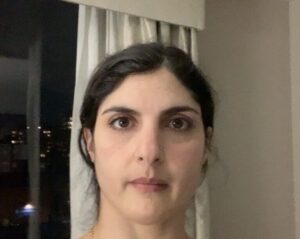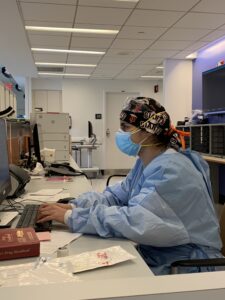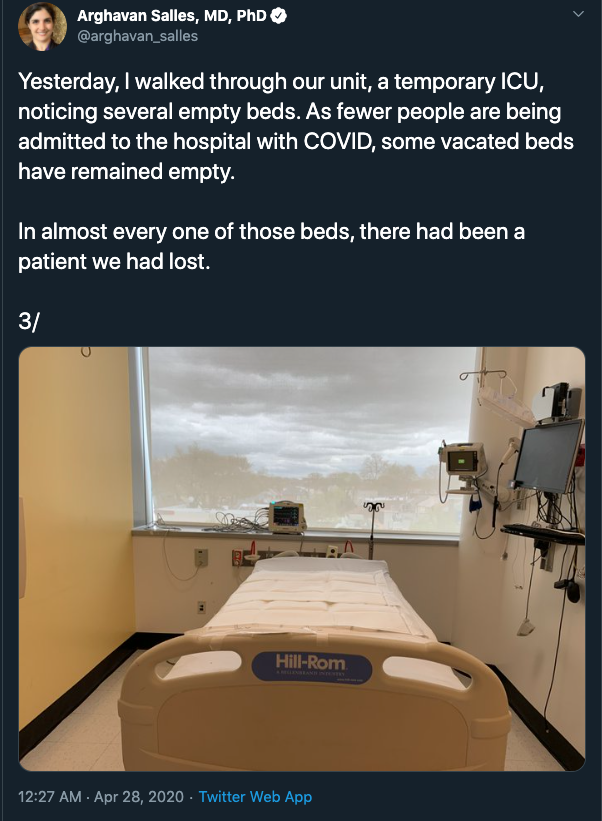ASMBS Profiles in Courage and Caring During COVID-19
In April as New York City hospitals were becoming overwhelmed with COVID-19 cases, bariatric surgeon Arghavan Salles, MD, PhD, who serves as a scholar-in-residence at the Stanford University School of Medicine in Palo Alto, California, decided she couldn’t stay on the sidelines any longer and instead volunteered to go to the frontlines of the pandemic in the United States.

“I live in northern California, which was the first part of the country to shelter in place. Since my home was actually relatively spared, my services weren’t needed here, but they were in New York,” said Dr. Salles, who traveled cross country to the nation’s epicenter for COVID-19 using vacation days.

After a one-day orientation, Dr. Salles was assigned to the intensive care unit at a Brooklyn hospital where she worked 13-hour-a-day shifts managing ventilators, treating complications and comforting patients and families while struggling emotionally with what she herself was witnessing. She was in the epicenter during the height of the COVID-19 pandemic in the United States. During this time, more than 45,000 people were in hospitals and the death toll would reach 17,000 people.
“I live in northern California, which was the first part of the country to shelter in place. Since my home was actually relatively spared, my services weren’t needed here, but they were in New York,” said Dr. Salles, who traveled cross country to the nation’s epicenter for COVID-19 using vacation days.
“It was immediately apparent how sick people can get, and what little we have to help them.” — Arghavan Salles, MD, PhD
But help Dr. Salles did and that help went far beyond medical treatment. She would be by the bedside providing comfort to patients when families could not. Other times, she would hold up her cellphone so isolated patients could FaceTime with their loved ones, in some cases, for the last time.
“Emotionally, it was the hardest two weeks of my life,” Dr. Salles said.
Dr. Salles is now back in California but her thoughts remain with the frontline healthcare professionals still battling the COVID-19 pandemic in New York.

“The biggest concern I have is for the people who continue to work in that environment and will have to be there through the second wave or whatever comes. They don’t really get a break and they don’t really get the support that they probably need because they’re working so hard and they have to keep coming to work,” Dr. Salles said.
But if they need help again, Dr. Salles says she would definitely go back. She still has some vacation time remaining. “I have another week in the fall that I could use should there be a second wave. Bariatric surgeons have skills that can be applied in a lot of different arenas. We are smart, adaptable and we can help.”